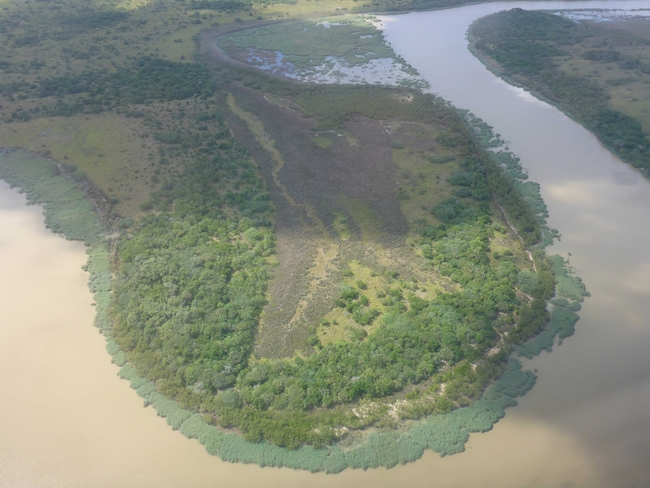10/11/2025 | At COP30, the Leibniz Centre for Tropical Marine Research (ZMT) and its international partners will present the All-Atlantic Network of Coastal Resilience Beacon Sites – an initiative that brings together science, politics and local stakeholders to develop solutions for sea level rise. Martin Zimmer and Véronique Helfer (Programme Area 4 ‘Ecosystem Co-Design') are involved in coordinating and hosting this event. They are responsible for the All-Atlantic Beacon Sites Network at ZMT.
On 14 November, from 10:00 to 11:00, a session on sea level-rise and coastal resilience will take place at COP30 in the Climate Mobility Pavilion (Blue Zone) with the aim of strengthening cooperation between science and politics and identifying ways in which research results can be translated into concrete adaptation measures.
The event „Bridging the Science Policy Gap in the Field of SLR: International Cooperation for Local Coastal Resilience Solutions“ is organised by the Federal Foreign Office Germany, the Ministère des Affaires étrangères in France, the Leibniz Centre for Tropical Marine Research (ZMT), the German Marine Research Consortium (KDM) and the Global Centre for Climate Mobility (GCCM).
The focus is on presenting the All-Atlantic Network of Coastal Resilience Beacon Sites – an international network dedicated to developing joint, interdisciplinary approaches to adapting to sea level rise and increasing coastal extremes.
While the consequences of climate change are felt worldwide, effective adaptation strategies must always be locally anchored. The Beacon Sites of Coastal Resilience serve as hubs where researchers, policy makers and local actors work together to develop measures to strengthen coastal resilience.
By sharing knowledge, experience and best practices, the network aims to bridge the gap between science and policy and promote community-based solutions that take the regional context into account.
The full programme of the pavilion is available here: https://drive.google.com/file/d/19YidZJPB7hhhu8gTbsoQRagtLLYW_2H3/view





